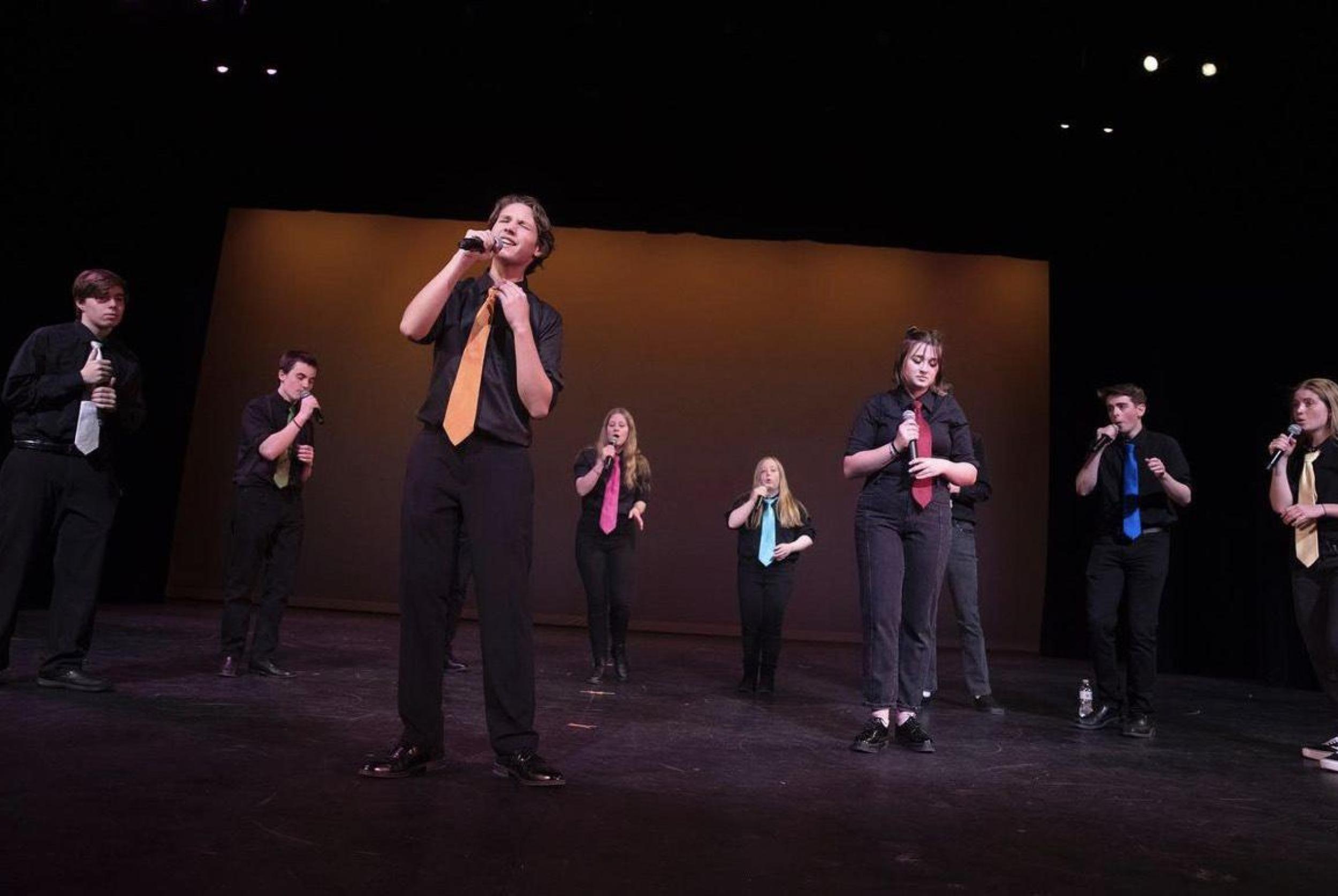Performing Arts at MHS: Why the Disparate Treatment?
Editor’s Note: Opinions expressed by Benji Boyd do not necessarily reflect those of the Marblehead Beacon.
 Benji Boyd is a sophomore at Marblehead High School. He enjoys writing creatively, and pursues an interest in journalism through writing and editing for the Marblehead High Headlight Newspaper and was the winner of the Marblehead Beacon writing competition hosted late last year. He entered the contest in hope of finding an outlet to publish writing and contribute to a local community paper.
Benji Boyd is a sophomore at Marblehead High School. He enjoys writing creatively, and pursues an interest in journalism through writing and editing for the Marblehead High Headlight Newspaper and was the winner of the Marblehead Beacon writing competition hosted late last year. He entered the contest in hope of finding an outlet to publish writing and contribute to a local community paper.
For many students, extracurricular activities are the foundation of the high school experience. Bonding with a team, enhancing college applications, and pursuing interests are just some of the benefits. While after school activities may not weigh the same in importance as academic classes, the opportunity to pursue a passion within one’s school community can affect how a student views their high school years– both during and after. Playing sports or performing does not boost one’s GPA, but the value these activities hold can become evident in other ways, such as making friends, learning skills, and having fun. These are some of the reasons that providing students with the opportunities to more fully explore and develop their interests and themselves during their teenage years are critical. As Marblehead High School (MHS) Principal Dan Bauer put it, extracurricular activities aren’t just additions to a school’s community, “they are essential.”
Unfortunately, pursuing multiple passions at school often is easier said than done. School can put a lot of pressure on students to prioritize certain activities at the cost of others. For example, one MHS student who participates in both the performing arts and sports made note of how differently the two departments handle conflicts. “People in music somehow have an understanding of how important sports is to people, and often will defer to whatever that schedule is,” said this student, who asked not to be named. “I would be allowed to skip rehearsal to go to a practice,” the student said. But “if I ever skipped a practice for a rehearsal, I would not be playing in the next game.”
The performing arts require just as much time and commitment as sports, yet sometimes, it appears, are not treated with the same deference as sports. While it is true that more students participate in sports than the performing arts, and need as much time together as possible, compromise is essential. There is a risk that a department treated as secondary will start behaving that way, and the effects will snowball. “The music department needs all the people all the time, and they can’t afford to have me not participate in their activities,” continued the student who is both a musician and an athlete, but “the rule [is] if you skip the sports practice or game for another activity, you have every right to be punished by your coach because you are affecting the opportunities of others...and then I wonder why music doesn’t enforce that.”
The impacts of these discrepancies–while not necessarily experienced by all students–can be significant. Due to lower participation rates and what appears to be a more lenient attendance policy for athletics, the music and performing arts departments cannot compel students to give them precedence over team sports. And though coaches are technically not allowed to punish players for doing multiple extracurriculars, the sports culture at MHS is perceived by some to be one of full-time expectation. Students attempting to live in both worlds sometimes lament that their two extracurricular communities don’t understand one another.
Thankfully, at MHS, major conflicts–such as a game and concert scheduled on the same night–generally do not arise unless there is a scheduling error, and students are not made to choose. But small everyday conflicts sometimes promote students flourishing in only one area. As the conflicted student put it, “In my brain they are equal, and one is not getting as much recognition as it deserves.”
“Death by a Thousand Cuts”: How the Performing Arts Have Slowly Declined
More broadly, sports seem to take center stage in Marblehead in a variety of other ways as well. The local news outlets, for instance, cover some performances, but for most of the publications, athletics has its own dedicated news section. Student body attendance–while not tracked statistically–anecdotally is significantly higher at sporting events, and sports social media publicity is far more robust than for the arts. The ultimate responsibility for self promotion rests on the shoulders of each department and its participants, but community engagement is integral as well.
In part two of this series, we will delve into the ways in which Marblehead became such a sports-centric community, as well as the ways in which Marblehead’s performing arts department has experienced “death by a thousand cuts.”
To post a comment, please login. If you do not have an account, please create one.





